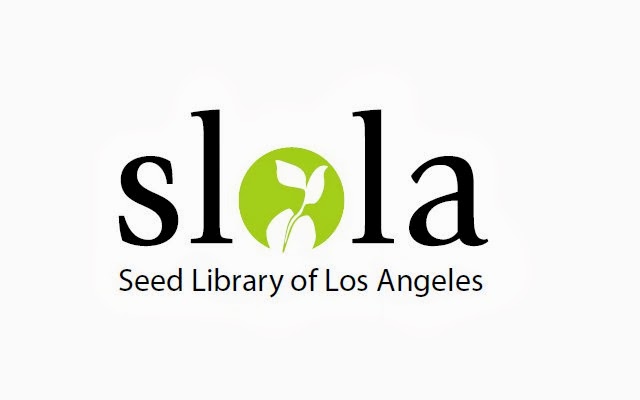Ostensibly the film is about Cary Fowler and the Svalbard Seed Bank - but what it's really about is our food and the seeds that food comes from. It doesn't sound all that dramatic, but it is!
In the past, I have been vocal about the difference between seed libraries and seed banks and I was vocally critical of seed banks. I felt the only "real" way to save seeds was to cultivate them - grow them, and use them. Keeping seeds in frozen storage has its downsides and I was well focused on that as well as the fact that I only knew of seed banks were owned by governments and tended to have a top down focus. Seed libraries, on the other hand, are bottom up and tend to be community efforts without a lot of money and dependent on volunteers. I was definitely pro-library and anti-bank.
My attitude has matured. Only recently did I reconcile with the idea of seed banks when it became apparent that the Seed Library Of Los Angeles was going to eventually need a seed bank to back up our work. That realization hit when it became clear to me that ANY physical location has the chance to be compromised. Our Venice location, for example could be wiped out by a fire (the building is very old and a fire is not out of the question - or a tidal wave or the vagaries of the Los Angeles Unified School District. We need some place when all else fails, doesn't.
Little did I realize that Svalbard could well be it. Svalbard, created from the original idea of Cary Fowler, is located above the Arctic Circle on the island called Svalbard and run under the auspices of the Norwegian government. It is wholly funded by the Norwegian government, unlike the information one can find on the internet. The seeds are held in storage as a backup for the people who sent them there, should there be a disaster that causes the loss of the seeds in their gardens and farms.
Seeds are prepared by, say, SLOLA, placed in a container and sent, with an inventory to Svalbard. There these seeds are checked in and place in the vaults. The only folks who can ask for the seeds to be removed from Svalbard would be SLOLA in response to a disaster befalling the libraries inventory.
This is not a dry movie. It moves with elegance and purpose. There is barely a dry eye in the house when the Filipino woman has to say what has happened to the seeds they had gathered to ship to Svalbard. When you watch this film with the awareness of our seeds and the importance of them, you will be moved as well.
And now we see clearly that we need both and this is one of the most ambitious seed banks in the world. The possibility that we will desperately need the seeds that are stored in Svalbard grows more and more unavoidable as politicians play blithe games with the reality of global climate change.
The movie is showing tonight, tomorrow (I'll be there as the Q and A guy on Sunday) and and on into next week. It is worth your while and you will learn a lot more about our food, our seeds, seed banks and Svalbard. Most of all though, you'll meet Cary Fowler, author of Shattering: Food, Politics, and the Loss of Genetic Diversity as well as other books. Compassionate, inspired, passionate and informed, Fowler is a thoroughly lovable and charming subject. The movie making is top notch and I encourage everyone who likes food and enjoys eating!
david



No comments:
Post a Comment